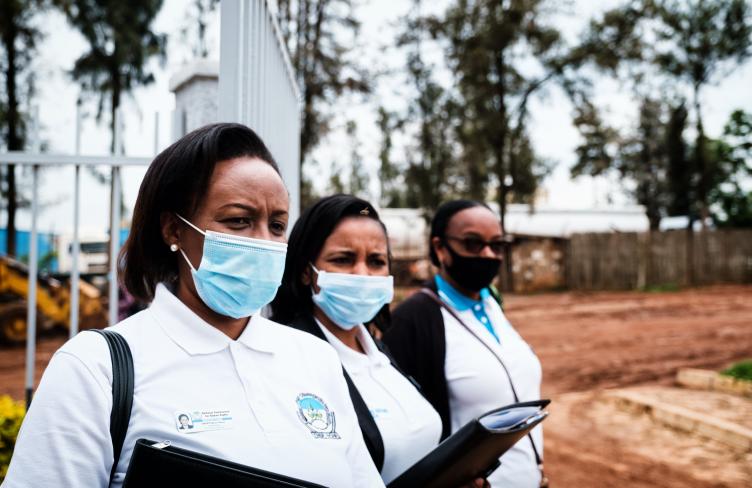During the month that marked the 10th anniversary of the Bangkok Rules, progress was made to guarantee the rights of adolescent girls deprived of their liberty in Brazil. At its session held on 17 December 2020, the National Council for the Rights of Children and Adolescents (CONANDA), a body composed by representatives of the government and civil society, approved a Resolution on the Guidelines for the Care of Adolescent Girls in the Socio-Educational System. We have no information from other countries where this specific attention for adolescent girls is standardised.
The adoption of this Resolution represents a framework to protect the rights of adolescent girls deprived of their liberty. It responds to a set of identified needs and seeks to contribute to the National System of Socio-Educational Assistance (SINASE), a measure that incorporates applicable national and international standards necessary to guarantee the rights of institutionalized adolescents.
The document recognizes the specific needs of adolescent girls deprived of their liberty, as well as the situations of vulnerability and risks to which they are often exposed. The National Preventive Mechanism (NPM) of Brazil has been raising a number of issues in its visit reports, such as cursing and depreciative treatment on the grounds of race and gender, failure to provide basic hygiene items, suspension of family visits as disciplinary sanction, direct custody of adolescent girls being carried out by male socio-educational agents, among others.
However, since the vote on the draft Resolution on the Guidelines for the Care of Adolescent Girls Deprived of Liberty in SINASE was announced for the 292nd Ordinary Assembly of CONANDA, from 15 to 17 December 2020, the government has begun to disclose untrue information about the content and purpose of the text. After the approval of the Resolution, with 14 votes in favour and 9 against, CONANDA and civil society representatives are suffering attacks in the media for the allegations and narratives built to create misinformation and dissension. Fighting for the publication of this Resolution, therefore, is now fighting to strengthen CONANDA.
The draft of this Resolution was jointly produced in a working group composed by representatives of the Brazilian NPM, the National Committee for the Prevention and Fight against Torture, and CONANDA, and then opened through public consultation to the contributions of representatives of institutions and professionals working in the field of children and adolescents and social education.
This Resolution, which also considered the Bangkok Rules as guiding standards for the care of adolescent girls, maintains Brazil as one of the countries with the most advanced norms in relation to children and adolescents.
Among the guarantees and innovations included in this new Resolution, it is worth highlighting the actions to prevent and combat physical and sexual violence, including the prohibition of direct custody of adolescent girls by male social-educational agents in the accommodation area. It also includes protection measures to avoid any kind of retaliation against those adolescent girls who make complaints of sexual, and/or physical violence, including the precautionary removal of the accused public agent from any activity in a social-educational unit that requires direct contact with adolescents. Actions to fight institutional racism are also foreseen, considering the interfaces of multiple discrimination related, above all, to black adolescent girls, mental health care and suicide prevention, among others.
The establishment of national guidelines for the care of adolescent girls deprived of their liberty will be a guiding instrument not only for those managing socio-educational facilities, but also for the institutions of the System to Protect the Rights of Children and Adolescents, according to the competence of each of its bodies.
In this context, it is necessary to point out that, like other achievements of human rights protection, this Resolution was the result of a process involving needs assessment, data systematization, and proposal of actions to address situations of vulnerability. It is also worth remembering that rights are achieved in a political context that is not always consensual. In this way, social participation has always been and remains fundamental to the democratic process and to the fighting for rights.
Therefore, we have to commemorate the approval of this Resolution, as it is a a milestone in the ongoing process to protect and expand rights. But it is also essential at this time that all national and international institutions committed to the promotion and protection of human rights monitor the process of internal processing of this Resolution, which ends only after its publication. Until that happens, let us be together with CONANDA, the fundamental body for the development and inspection of policies for children and adolescents in Brazil.
Adriana Raquel Ferreira Costa Oliveira, Member of the Brazilian NPM
Social worker, member of the National Mechanism for Preventing and Combating Torture of Brazil. Specialist in social psychology, by UFMA, specialist in human rights, by UCB, master student in social policy, at UnB.
